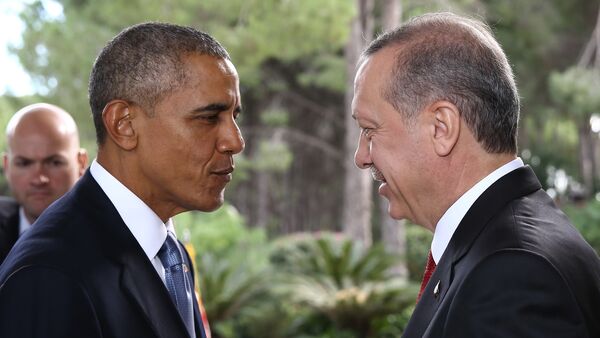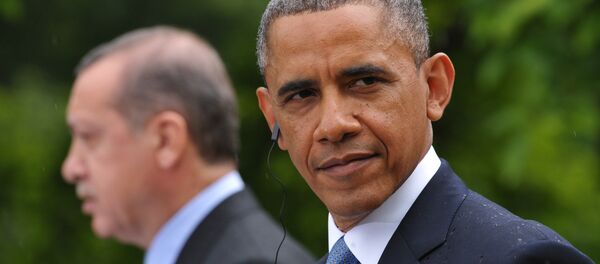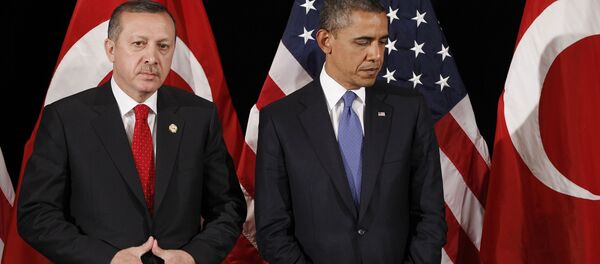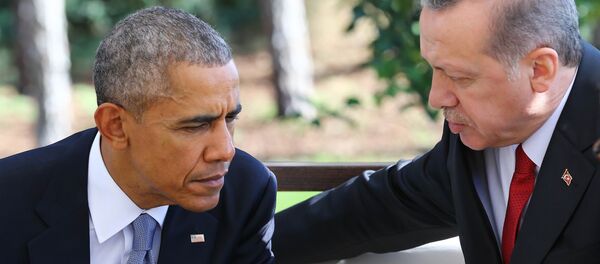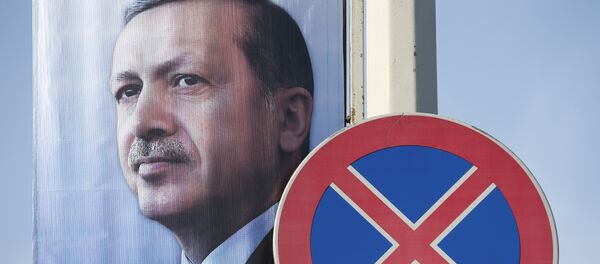Earlier reports suggested that the American leader has turned down the request of his Turkish counterpart for a one-to one meeting and an invitation to join him for the inauguration of a Turkish-funded mosque in Maryland.
This has sparked intense speculation over a suggested failure in the relationship between the two and a deliberate US snub amid differences over Syria and Washington's concerns over the direction of Turkey's domestic policies.
However senior US administration officials said the decision not to meet Erdogan while he is in Washington “shouldn’t be taken as a slight because the two presidents met in November at the Group of 20 summit in Turkey, and spoke by phone in February,” according to The Wall Street Journal.
It was not revealed what the leaders are going to talk about.
"There obviously is a lot of important work to do with our allies in Turkey… It also includes continuing to intensify our coordination on key aspects of our counter-ISIL (Daesh) strategy, including ramped-up efforts to secure the Turkey-Syria border," Reuters quotes White House spokesman Josh Earnest as telling reporters travelling with Obama.
The widespread speculations in the media however suggest that Washington and Ankara are sharply divided over a Kurdish militia in northern Syria.
Many journalists have noticed a considerable cooling in the rhetoric of President Obama, who once said he counted Erdogan among his closest allies.
“The two men would talk regularly, and Mr. Obama hosted Mr. Erdogan for dinner when he and his family came to Washington in May 2013,” National Security reporter Dion Nissenbaum and White House correspondent Carol E. Lee noted in their article for The Wall Street Journal.
“At the time, Mr. Erdogan, then serving as Turkey’s prime minister, had just launched historic peace talks with Kurdish separatists. Mr. Obama called for deeper economic ties when the two leaders held a Rose Garden news conference.”
The authors then note that Erdogan’s further moves on a “crackdown on domestic critics”, including Turkish cleric Fethullah Gulen and hundreds of Turkish journalists who have criticized him, and waging a new fight with Kurdish insurgents, might have alienated Erdogan’s allies.
“The allies’ need to work with the Turkish president has tempered their public criticism,” they say.
Erdogan’s criticism of the US might have also contributed to the tensions:
“This is the behavior of a big brother giving lessons. We need friendship,” he then claimed.
“The White House does not want to make President Erdogan look welcome,” the newspaper quotes Max Hoffman, associate director of national security and international policy at the Center for American Progress, a liberal think tank in Washington, as saying.
“The Gezi Park protests in May 2013 and the ensuing crackdown crystallized long-running concerns about Erdogan’s authoritarianism and the stifling of political dissent,” he said.
“The shuttering of newspapers and TV channels has continued, and the consensus in Washington now is that Erdogan is corrupting Turkey’s democracy to pursue his personal ambition.”
The world however is yet to see the outcome of the informal talks in Washington.
